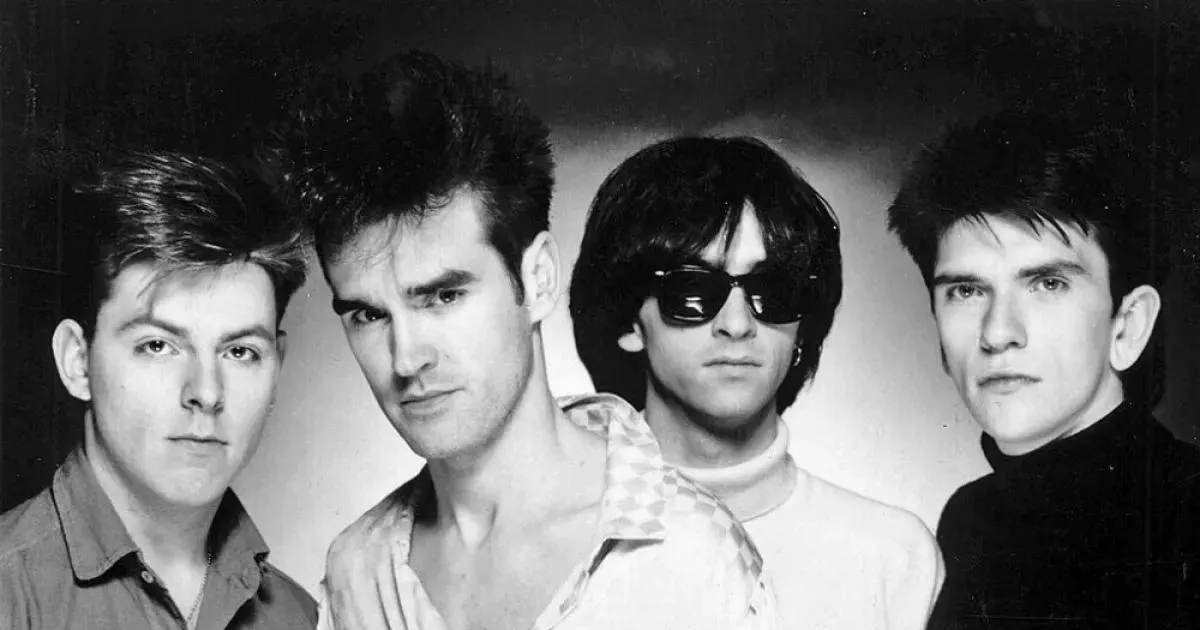The Smiths were an influential English rock band formed in Manchester in 1982. The band consisted of Morrissey (vocals), Johnny Marr (guitar), Andy Rourke (bass), and Mike Joyce (drums). Morrissey and Marr were the primary songwriting partnership. They are considered one of the most significant bands to emerge from the British independent music scene of the 1980s, known for their distinctive sound and Morrissey's lyrical style.
August 1978: Marr and Morrissey Meet at Patti Smith Gig
In August 1978, Johnny Marr and Steven Morrissey met at a Patti Smith gig at Manchester's Apollo Theatre. They bonded over their love of poetry and literature.
May 1982: Marr Invites Morrissey to Form a Band
In May 1982, Johnny Marr invited Steven Morrissey to form a band, marking the beginning of The Smiths. Marr went to Morrissey's home to invite him.
May 1982: Morrissey Creates The Smiths Name
In May 1982, Morrissey created the musical unit name 'The Smiths'.
August 1982: The Smiths Record First Demo
In August 1982, The Smiths recorded their first demo at Decibel Studios, aided by drummer Simon Wolstencroft, featuring the songs "The Hand That Rocks the Cradle" and "Suffer Little Children".
October 1982: First Public Performance
In October 1982, The Smiths gave their first public performance at Manchester's Ritz as a support act for Blue Rondo à la Turk. Morrissey organised the gig's aesthetic.
December 1982: Second Demo Recording
In December 1982, The Smiths recorded their second demo at Drone Studios, featuring tracks like "What Difference Does It Make?", "Handsome Devil", and "Miserable Lie", which was used as an audition tape for EMI.
1982: Formation of The Smiths
In 1982, The Smiths, an English rock band, formed in Manchester. The band consisted of Morrissey (vocals), Johnny Marr (guitar), Andy Rourke (bass), and Mike Joyce (drums). Morrissey and Marr were the primary songwriting partnership.
1982: Morrissey Chooses the Band Name 'The Smiths'
In late 1982, Morrissey chose the band name The Smiths, aiming for an ordinary name to represent ordinary folk.
January 1983: Performance at Manchester's Manhattan
In late January 1983, The Smiths performed at Manchester's Manhattan. James Maker appeared as a go-go dancer for the last time.
May 1983: Release of "Hand in Glove" Single
In May 1983, Rough Trade Records released The Smiths' song "Hand in Glove" as a single. Morrissey insisted on a homoerotic photograph for the cover.
1983: Morrissey's Name Preference
In 1983, Morrissey decided to be known publicly only by his surname and forbade the use of his first name, Steven.
1983: Signing with Rough Trade Records
In 1983, The Smiths signed with the independent record label Rough Trade Records, marking a significant step in their early career.
February 1984: Release of Debut Album and Controversy
In February 1984, The Smiths released their debut album, "The Smiths", which reached number two on the UK Albums Chart. The songs "Reel Around the Fountain" and "The Hand That Rocks the Cradle" faced controversy.
March 1984: Performance on "The Tube"
In March 1984, The Smiths performed on Channel 4 music program "The Tube".
1984: Release of debut album "The Smiths"
In 1984, The Smiths released their debut album, "The Smiths". Their guitar, bass, and drum sound rejected the synth-pop sound predominant at the time.
November 1985: The Queen Is Dead Album Completed
In November 1985, The Smiths completed their album "The Queen Is Dead", which was later released in June 1986 after delays due to a legal dispute with Rough Trade.
1985: Political Stance and Controversy
In 1985, Morrissey courted controversy with his political stance in interviews, targeting the Thatcher government, the British monarchy, and Band Aid. The band completed lengthy tours of the UK and the US.
1985: "Meat Is Murder" Reaches Number One
In 1985, The Smiths' album "Meat Is Murder" reached number one on the UK charts, marking a high point in their commercial success. The album was the band's only album to reach number one on the UK charts.
1985: Release of "Meat Is Murder"
In early 1985, The Smiths released their second studio album, "Meat Is Murder". The album included the pro-vegetarian title track and other politically charged songs. It was the band's only album to reach number one on the UK charts.
June 1986: Release of "The Queen Is Dead"
In June 1986, The Smiths' third studio album, "The Queen Is Dead", was released, following the singles "The Boy with the Thorn in His Side" and "Bigmouth Strikes Again". The album reached number two on the UK charts.
October 1986: End of UK Tour and Breakdown in Relations
In October 1986, after The Smiths' UK tour ended, relations between Johnny Marr and Craig Gannon broke down, leading to Gannon's departure from the band.
December 1986: Last Concert at Brixton Academy
On 12 December 1986, The Smiths performed their last concert at Brixton Academy in London, an anti-apartheid benefit.
1986: Morrissey's Support for Fan on The Old Grey Whistle Test
In 1986, Morrissey wore a fake hearing aid on The Old Grey Whistle Test to support a hearing-impaired fan, also often wearing NHS-style glasses.
1986: Mainstream Success in Europe with "The Queen Is Dead"
In 1986, The Smiths achieved mainstream success in Europe with their album "The Queen Is Dead". The band briefly became a five-piece with the addition of guitarist Craig Gannon.
1986: Rank Live Album Recorded
In 1986, the live album Rank was recorded when Craig Gannon was still in the band.
1986: Rourke Fired from the Band
In early 1986, Andy Rourke was fired from The Smiths due to his heroin use, allegedly receiving the notice via a Post-it Note.
January 1987: Release of "Shoplifters of the World Unite"
In January 1987, The Smiths released "Shoplifters of the World Unite", which reached number 12 on the UK Singles Chart.
March 1987: Release of "Louder Than Bombs" in the US
In March 1987, The Smiths released the compilation album "Louder Than Bombs" in the US.
June 1987: Marr Takes a Break
In June 1987, Johnny Marr, feeling exhausted, took a break from The Smiths, a decision that he felt was negatively received by his bandmates, contributing to rising tensions within the band.
October 1987: Strangeways, Here We Come Reaches Number Two in the UK
In October 1987, Strangeways, Here We Come reached number two in the UK charts, and was the Smiths' most successful album in the US, reaching number 55 on the Billboard 200.
1987: Blur Forms After Seeing The Smiths
In 1987, Blur formed as a result of seeing The Smiths on The South Bank Show.
1987: The Smiths Break Up
In 1987, The Smiths broke up due to internal tensions, leading to lawsuits over royalties.
1987: Release of "Strangeways, Here We Come"
In 1987, The Smiths released the album "Strangeways, Here We Come", which entered the top 20 of the European Albums Chart. This marked continued success in Europe for the band.
1987: Signing with EMI and Fan Criticism
In early 1987, The Smiths signed with EMI after being severed from Rough Trade, drawing criticism from their fanbase and the music press.
March 1988: Morrissey Releases Viva Hate
In March 1988, Morrissey released his first solo album, Viva Hate, which reached number one in the UK charts.
1988: Rourke and Joyce Tour with O'Connor, Join Adult Net
In 1988, Andy Rourke and Mike Joyce toured with Sinéad O'Connor and also joined The Adult Net (with Craig Gannon), showcasing their continued collaboration.
1988: Debut solo album release: Viva Hate
In 1988, Morrissey released his debut solo album, Viva Hate, after the split of The Smiths. The album included an early version of "Bengali in Platforms" which was recorded with the former Easterhouse guitarist Ivor Perry, who had been briefly brought in to replace Marr.
March 1989: Joyce and Rourke Start Legal Proceedings
In March 1989, Mike Joyce and Andy Rourke initiated legal proceedings against Morrissey and Marr, claiming they were entitled to a 25% share of the band's profits, arguing they were equal partners rather than session musicians.
1989: Rourke and Joyce Record with Morrissey
In 1989, Andy Rourke and Mike Joyce recorded singles with Morrissey after the band split.
1989: Marr Forms Electronic and Joins The The
In 1989, Johnny Marr returned to music by forming Electronic with Bernard Sumner and Neil Tennant and also joining The The, marking a new phase in his career after The Smiths.
1989: Morrissey Cites Business Problems for Smiths Split
In a 1989 interview, Morrissey cited the lack of a managerial figure and business problems as reasons for the split of the Smiths.
1990: Rourke Appears on O'Connor Album
In 1990, Andy Rourke appeared on Sinéad O'Connor's album I Do Not Want What I Haven't Got, further establishing his work outside The Smiths.
1990: Marr on Smiths' Musical Direction
In 1990, Marr described the Smiths' musical direction as a "50/50 thing" between him and Morrissey, emphasizing their synchronicity.
1990: Joyce Records with Suede, Tours with Buzzcocks
In 1990, Mike Joyce recorded with Suede and toured with Buzzcocks, marking his involvement in various musical projects.
1992: Marr criticizes Morrissey's musical inflexibility
In 1992, Marr expressed his frustration with Morrissey's musical inflexibility, particularly Morrissey's obsession with covering 1960s pop artists such as Twinkle and Cilla Black, stating: "That was the last straw, really. I didn't form a group to perform Cilla Black songs."
1992: Joyce Tours with Cope, Tours with Lydon and PiL
In 1992, Mike Joyce toured with Julian Cope and with John Lydon and Public Image Ltd, expanding his performance experience.
1993: Marr's Time with The The Ends
By 1993, Johnny Marr's stint with The The had concluded after recording two albums with the band.
1994: Rourke Plays on The Pretenders' Album
In 1994, Andy Rourke played and recorded with the Pretenders, featuring on their album Last of the Independents.
1994: Jeff Buckley's Grace Album
In 2010, Morrissey named Jeff Buckley's 1994 album Grace as his 12th-favorite album.
1995: Joyce Records with P.P. Arnold
In 1995, Mike Joyce recorded with P.P. Arnold, contributing to diverse musical collaborations.
December 1996: Joyce's Case Reaches High Court of Justice
In December 1996, Mike Joyce's legal action against Morrissey and Marr reached the High Court of Justice, Chancery Division, concerning his entitlement to a quarter of the Smiths' profits.
1996: Joyce Tours and Records with Wylie
From 1996, Mike Joyce toured and recorded with Pete Wylie, further establishing his presence in the music scene.
1997: Marr and Morrissey Pay Joyce £215,000
In 1997, Marr and Morrissey each paid Mike Joyce £215,000 following the court case.
November 1998: Morrissey's Appeal Dismissed
In November 1998, Morrissey's appeal against the verdict in the Joyce case was dismissed by the Court of Appeal (Civil Division).
1998: Rourke and Joyce Tour with Aziz Ibrahim
In 1998, Andy Rourke and Mike Joyce toured and recorded with Aziz Ibrahim of The Stone Roses, continuing their musical partnerships.
1998: Marr Produces Marion's The Program
In 1998, Johnny Marr produced Marion's second album, The Program, showcasing his production skills.
1999: Rourke Declared Bankrupt
In 1999, inspired by Joyce's success in court, Andy Rourke sought legal advice, but was subsequently declared bankrupt.
2000: Marr starts Johnny Marr + the Healers
In 2000, Johnny Marr started another band, Johnny Marr + the Healers, which released only one album.
2001: Rourke and Joyce Form Specter, Record Demos as Moondog One
In 2001, Andy Rourke and Mike Joyce formed Specter and recorded demos with Paul Arthurs, Aziz Ibrahim, and Rowetta Idah under the name Moondog One.
2001: Marr's Final Backpayment to Joyce, Morrissey's Default Judgement
In 2001, Marr made his final backpayment of £260,000 to Mike Joyce, while Morrissey faced a default judgement due to being overseas and missing paperwork.
2001: Marr on Radiohead's Influence
In 2001, Marr said that Radiohead was the act that had "come closest to the genuine influence of the Smiths".
2002: Marr Works on Oasis' Heathen Chemistry
In 2002, Johnny Marr worked as a guest musician on Oasis' album Heathen Chemistry, contributing to the project.
2002: Joyce Not Interested in Smiths Reunion
In 2002, Mike Joyce stated that he was not interested in a Smiths reunion, feeling that the band had run its course.
2003: Boomslang release
In 2003, Johnny Marr + the Healers released their only album Boomslang.
November 2004: VH1's Bands Reunited Attempts to Corner Morrissey
In November 2004, VH1's Bands Reunited screened an episode showing Aamer Haleem's unsuccessful attempt to approach Morrissey about a Smiths reunion.
2004: Rourke Features on Proud Mary Album
In 2004, Andy Rourke featured on Proud Mary's album Love and Light, showcasing his continued musical involvement.
2004: Marr regrets the lack of legal documents
In 2004, Marr stated that he wished The Smiths had signed legal documents "from the word go" to avoid the later financial disagreements.
2004: Rolling Stone's 500 Greatest Songs
In 2004, Rolling Stone included "William, It Was Really Nothing" and "How Soon Is Now?" on its list of the "500 Greatest Songs of All Time".
November 2005: Joyce Sells Rare Recordings, Morrissey Responds
In November 2005, Mike Joyce disclosed financial hardship and the sale of Smiths recordings, leading Morrissey to reveal Joyce's previous payments and his own grievances over legal costs.
2005: Rourke and Joyce Play with Vinny Peculiar
In 2005, Andy Rourke and Mike Joyce played with Vinny Peculiar, recording the single "Two Fat Lovers", expanding their musical collaborations.
January 2006: Manchester v Cancer Benefit Concert
In January 2006, Marr and the Healers played at Rourke's Manchester v Cancer benefit concert, where Marr performed "How Soon Is Now?" with Rourke.
March 2006: Morrissey Declines Coachella Offer
In March 2006, Morrissey revealed that The Smiths had declined a $5 million offer to perform at Coachella, emphasizing that money was not a factor in their decision.
2006: Marr Begins Work with Modest Mouse
In 2006, Johnny Marr began collaborating with Isaac Brock of Modest Mouse on new music, leading to a significant partnership.
2006: Joyce Appears on Peculiar Album
In 2006, Mike Joyce appeared on Vinny Peculiar's album The Fall and Rise of Vinny Peculiar, adding to his contributions outside The Smiths.
2006: Morrissey on Refusing Smiths Reunion
In 2006, Morrissey emphatically stated his opposition to reforming The Smiths, citing his hard work since the band's demise and strained relationships.
August 2007: Reports of Rejected Reunion Offer
In August 2007, reports surfaced that Morrissey declined a $75 million offer for a Smiths reunion tour in 2008 and 2009, though the veracity of the offer was later questioned.
2007: Rourke and Joyce Release Documentary
In 2007, Andy Rourke and Mike Joyce released the documentary DVD Inside the Smiths, offering their perspective on their time with the band.
2007: Rourke Features on Ian Brown Album, Forms Freebass
In 2007, Andy Rourke featured on Ian Brown's album The World Is Yours and formed Freebass with Peter Hook and Mani, marking significant musical endeavors.
2007: Joyce Tours with Peculiar and Arthurs
In 2007, Mike Joyce toured with Vinny Peculiar and Paul Arthurs, showcasing continued collaborations.
2007: Marr Becomes Full Member of Modest Mouse
In 2007, Modest Mouse announced that Johnny Marr had become a fully fledged member, solidifying his role in the band.
2007: Smiths as Vital Voice of the 80s
In 2007, Simon Goddard argued in Q that the Smiths were "the one truly vital voice of the '80s" and "the most influential British guitar group of the decade".
2007: Marr on Guitar Style
In a 2007 BBC interview, Marr discussed his goal to "pare down" his guitar style and avoid rock clichés.
January 2008: Marr Participates in Songwriting Session with The Cribs
In January 2008, Johnny Marr participated in a week-long songwriting session with the Cribs, signaling a new collaboration in his career.
2008: Remastering and Reunion Discussions
In 2008, Marr resumed contact with Morrissey and Rourke while remastering The Smiths' catalogue, leading to discussions about a band reunion. The reunion idea was eventually abandoned.
2008: Joyce Tours with Autokat
In 2008, Mike Joyce toured with Autokat, adding to his performance experiences.
2008: Speculation of a Smiths Reunion
In 2008, there was wide speculation that Morrissey was offered nearly £40 million to reunite with Marr for a fifty-date world tour.
February 2009: Morrissey Rejects Reunion
In a February 2009 interview on BBC Radio 2, Morrissey reiterated his rejection of a Smiths reunion.
June 2009: Marr Discusses Reunion Offer
In June 2009, Marr mentioned a $50 million offer for a Smiths reunion in an XFM interview, clarifying that money wasn't the reason for declining it.
2009: Marr Appears on The Cribs' Ignore the Ignorant
In 2009, Johnny Marr appeared on The Cribs' fourth album, Ignore the Ignorant, showcasing his contribution to the band during his tenure.
2009: Reports of a Smiths Reunion
In 2009, there were reports that Morrissey was offered nearly £40 million to reunite with Marr for a fifty-date world tour.
2009: Rourke Relocates to New York
In early 2009, Andy Rourke relocated to New York, expanding his career horizons.
December 2010: Brief Email Correspondence
In December 2010, Marr and Morrissey briefly corresponded via email after a period of no contact.
2010: Morrissey Names Grace as Favorite
In 2010, Morrissey named Jeff Buckley's 1994 album Grace as his 12th-favorite album.
2010: Morrissey Included in Greatest Singers List
In 2010, Rolling Stone included Morrissey in its list of the greatest singers.
April 2011: Marr Departs The Cribs
In April 2011, Johnny Marr's departure from The Cribs was announced, ending his three-year association with the band.
2012: Rolling Stone's 500 Greatest Albums
In 2012, Rolling Stone included four Smiths albums on its list of the "500 Greatest Albums of All Time".
2013: Marr Releases The Messenger
In 2013, Johnny Marr released his first solo album, The Messenger, marking a new chapter in his career.
April 2014: O'Riordan Joins Rourke's D.A.R.K.
In April 2014, Dolores O'Riordan of the Cranberries joined Andy Rourke's group Jetlag, leading to a name change to D.A.R.K.
2014: Marr Releases Playland
In 2014, Johnny Marr released his second solo album, Playland.
2014: Lollapalooza Brazil Festival
In 2014, Marr and Rourke performed "How Soon Is Now?" at the Lollapalooza Brazil festival.
2014: Rock and Roll Hall of Fame Nomination
In 2014, The Smiths were nominated for the Rock and Roll Hall of Fame.
2015: Rock and Roll Hall of Fame Nomination
In 2015, The Smiths were nominated for the Rock and Roll Hall of Fame.
2016: Marr Jokes About Morrissey's Politics
In 2016, Marr joked that Morrissey's politics aligned with Nigel Farage's, suggesting Farage could be their guitarist in a Smiths reunion.
2018: Marr Releases Call the Comet
In 2018, Johnny Marr released his solo album, Call the Comet, adding to his discography as a solo artist.
2018: Marr Registers The Smiths Trademark
In 2018, Marr registered The Smiths' trademark solely under his name after a third party attempt to use the band's name, and after failing to receive a response from Morrissey and his representatives.
2020: Morrissey's Solo Career Update
As of 2020, Morrissey had released 13 studio albums as a solo artist since the beginning of his solo career after The Smiths split.
2021: Blossoms and Rick Astley Perform Smiths Covers
In 2021, the band Blossoms and the singer Rick Astley performed several concerts of Smiths covers.
May 2023: Andy Rourke's Death
On 19 May 2023, Andy Rourke died of pancreatic cancer at the age of 59.
2023: Death of Andy Rourke
In 2023, Andy Rourke, the bassist for The Smiths, passed away.
2023: Glastonbury Performance of Smiths Covers
In 2023, Blossoms and Rick Astley performed Smiths covers at Glastonbury Festival. The performances garnered positive reviews, offering a way to enjoy the Smiths without Morrissey's controversies.
2023: Value Adjustment of Rourke's Settlement
In 2023, the lump sum of £83,000 that Rourke received in settlement in March 1989 was equivalent to £260,824.
January 2024: Agreement to Share Trademark Ownership
In January 2024, Marr signed an agreement to share ownership of The Smiths' name with Morrissey, though Morrissey has yet to follow up on it.
August 2024: Morrissey Claims Reunion Offer Acceptance
In August 2024, Morrissey claimed he accepted a "lucrative offer" for a 2025 Smiths tour, but that Marr did not respond. Marr denied this claim.
2025: Proposed Reunion Tour
In August 2024, Morrissey claimed that a reunion tour was proposed for 2025, but that Marr did not respond.
Mentioned in this timeline
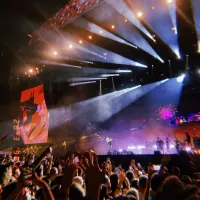
Lollapalooza is an annual four-day music festival held in Grant...
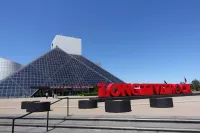
The Rock and Roll Hall of Fame located in Cleveland...
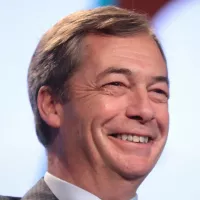
Nigel Farage is a prominent British politician and broadcaster known...
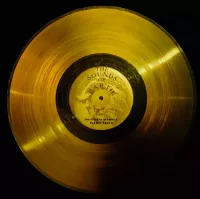
Music is a cultural universal involving the arrangement of sound...
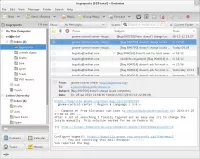
Electronic mail or email revolutionized communication by providing a digital...
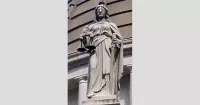
Justice in its broadest sense is the concept of treating...
Trending
49 minutes ago Tim NeCastro Announces Retirement as Erie Insurance CEO After 10 Years

3 hours ago Apple MacBook Pro: Touchscreen, Dynamic Island, and New Interface Coming Soon.

3 hours ago Microsoft and SpaceX Starlink Partner to Empower Global Community Internet and AI Economy
50 minutes ago Trump Announces Energy Deals and Rate Payer Protection Pledges at SOTU
3 hours ago Whitefox & Fluid Quip collaborate; Low-carbon ethanol boosted; Indoor plants aid climate resilience.

2 hours ago Ethereum Price Faces Resistance at $1,950 Amidst Market Repricing Concerns.
Popular

Jesse Jackson is an American civil rights activist politician and...

Susan Rice is an American diplomat and public official prominent...

Barack Obama the th U S President - was the...

Michael Joseph Jackson the King of Pop was a highly...

XXXTentacion born Jahseh Dwayne Ricardo Onfroy was a controversial yet...

Bernie Sanders is a prominent American politician currently serving as...
